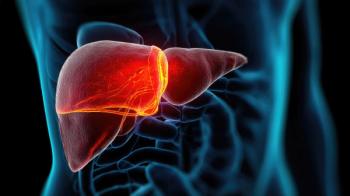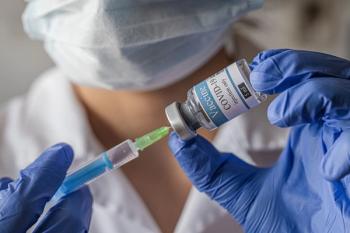
Carrie Harney, JD, of US Pharmacopeia (USP) discusses how proposed tariffs could impact generic drug supply chains, sterile injectable shortages, and pharmacy operations, underscoring the need for policy incentives and manufacturing diversification.

Carrie Harney, JD, of US Pharmacopeia (USP) discusses how proposed tariffs could impact generic drug supply chains, sterile injectable shortages, and pharmacy operations, underscoring the need for policy incentives and manufacturing diversification.

UPMC Health Plan enhances COPD care through a multidisciplinary approach, leveraging telehealth, education, and pharmacist-led programs to optimize patient outcomes.

Results from the ZENITH trial show sotatercept's promise for pulmonary arterial hypertension treatment.

Omolola (Lola) A. Adeoye-Olatunde, PharmD, MS, discusses her passion for advancing community-engaged pharmacy research.

Critically ill patients treated with a pharmacist-managed insulin protocol achieved higher rates of glucose control than those treated with conventional methods.

Pharmacists play a critical role in preventing medication ordering errors during residency onboarding through proactive training, system safeguards, and interdisciplinary collaboration.

Hypertension is widespread and linked to serious health risks, but new treatments for resistant cases target new mechanisms of action.

The advisory committee cited concerns around ocular toxicity and overall tolerability, raising serious questions about the drug's benefit-risk profile ahead of its scheduled Prescription Drug User Fee Act action date on July 23, 2025.

Researchers unveil a groundbreaking method using polypurine hairpins to inhibit PCSK9, offering a promising alternative for lowering cholesterol and reducing cardiovascular risk.

Immunocompromised patients, especially transplant recipients, face heightened RSV risks, leading to severe infections and complications.

The National Comprehensive Cancer Network (NCCN) has released multiple myeloma guidelines version 2.2026 to include linvoseltamab as a preferred treatment for heavily pretreated patients, highlighting its intravenous formulation, dosing options, and streamlined Risk Evaluation and Mitigation Strategy program.

NCCN updates ovarian cancer guidelines, emphasizing personalized maintenance therapy with niraparib for HR-deficient patients, enhancing oncology pharmacists' roles.

GLP-1 compounding faces legal challenges, evolving FDA rules, and heightened enforcement risks.


UPMC's integrated approach to COPD care enhances patient outcomes through personalized support, coordinated services, and effective pulmonary rehabilitation strategies.

Once-weekly efsitora alfa shows promising hemoglobin A1C reduction in type 2 diabetes (T2D), simplifying insulin therapy and reducing injection frequency significantly.

Research reveals HER2-negative breast cancer shows higher pCR rates than HER2-low, influencing neoadjuvant chemotherapy strategies for early-stage patients.

Research reveals that higher BMI in women with cardiovascular disease significantly increases breast cancer risk, highlighting the need for targeted prevention strategies.

The FDA approves a prefilled syringe for the zoster vaccine recombinant, enhancing shingles vaccination convenience and effectiveness for adults 50 years and older.

Since the most recent guidelines were published, more evidence has emerged regarding intravenous corticosteroids for severely ill patients.

New research shows effective interventions can reduce prescriptions across all ages.

An adjusted analysis of the ALPINE and ASCEND trials revealed a statistically significant progression-free survival advantage for zanubrutinib.

The data highlight novel therapies and biomarkers shaping personalized cancer care.

The COBBRA trial compared bleeding risk with rivaroxaban vs apixaban in patients with acute venous thromboembolism.

Obesity and type 2 diabetes in youth significantly increase the risk of osteoporosis and fractures, highlighting the need for early intervention and healthy habits.

Receiving a COVID-19 vaccination vastly reduced the risk of long-term hospitalization, necessitating dialysis, and morbidity in patients hospitalized with acute kidney injury related to SARS-CoV-2 infection.

The data showed patients with relapsed or refractory multiple myeloma achieved a 73% overall response rate.

Patients with chronic kidney disease (CKD) were more likely to get vaccinated for influenza and pneumococcal following a health care provider’s recommendation.

Researchers unveil compounds that enhance cell death and boost antiviral responses, offering hope against RSV and other viral infections.

Combination therapy with trastuzumab emtansine and trastuzumab significantly enhances survival rates in HER2-positive early breast cancer, outperforming trastuzumab alone.